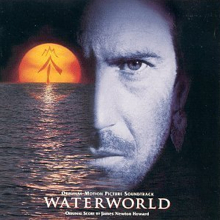![]() Peter Thiel, the famous PayPal founder, hedge fund manager and angel investor, has a minor tendency to put money into outlandish concepts.
Peter Thiel, the famous PayPal founder, hedge fund manager and angel investor, has a minor tendency to put money into outlandish concepts.
The early Facebook investor is the leading contributor to the Singularity Institute for Artificial Intelligence, an organization dedicated to advancing humanity through the creation of a super-intelligent but friendly AI. He has also given $500,000 to The Seasteading Institute, a less well known but perhaps equally far-out think tank whose mission is to push the world towards settling tiny nation states in the ocean.
On October 10th, The Seasteading Institute will put on its first annual conference, where speakers will discuss the concept, some possible seastead designs and various ways to bring them to fruition.
According to Patri Friedman, TSI’s founder, the problem with what he calls the “governing industry,” is that it has a “high barrier to entry and high customer lock in.” There are immense financial and personal costs involved in abandoning your nation of origin and transferring your citizenship. To Friedman, these costs are an obstruction to human freedom. The solution? Highly rugged, modular constructions that make it easy to attach your home to your micro-nation of choice but just as easy to detach it and move away. Since every square inch of land on the Earth is claimed, the only place to put these things is the ocean.
AI Weekly
The must-read newsletter for AI and Big Data industry written by Khari Johnson, Kyle Wiggers, and Seth Colaner.
Included with VentureBeat Insider and VentureBeat VIP memberships.
The result Friedman envisions is essentially a market for your citizenship. In an ocean filled with seasteads, your allegiance is like the SIM card in your phone: Changing providers is not a meaningless task, but you can quickly transfer to a different model if you’re dissatisfied with the performance of the status quo. Seasteaders will be able to experiment with the social contract in ways that are just not possible right now.
Friedman estimates that the current designs will cost between $10 and $50 million to build, depending on their size. The cost of buying room in a seastead will be around $500 per square foot, with annual maintenance costs of five percent. Early seasteads, he says, will probably stay near the coast and be part-time homes or resorts for the wealthy and curious. Living on the ocean, at least at first, will not be cheap.
Nor will it be easy: The ocean is and always will be a hectic place to live. Seasteaders will have to cope with the desolation of the open sea, to say nothing of pirates and storms. Friedman is aware that life in early seasteads would be quite rough. He expects frontier types — those willing to deal with serious discomfort and danger in exchange for greater autonomy — will lead the way.
Attending the conference is free for students, $95 for journalists, and $195 for everyone else. You can sign up here.
(Waterworld Image: Universal Pictures)
VentureBeat's mission is to be a digital town square for technical decision-makers to gain knowledge about transformative enterprise technology and transact. Learn More